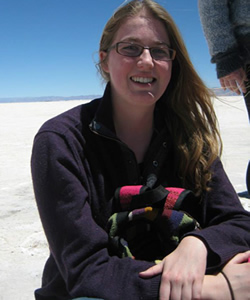“Aren’t the Americans angry about this?”
“Ohhh, yes,” I replied, “People are very upset about it.”
“But then, why aren’t they out in the streets…yelling, and protesting, and lighting things on fire?”
Before I could gather a coherent answer, he followed up, “If the government shutdown in Argentina, people would be lighting things on fire. We reallyyyy like to light things on fire.”
We really like to light things on fire.
There, in a sentence, is the best descriptor of Argentine politics that I have heard yet.
Though I have been here over three months, I still find myself grappling on a daily basis to wrap my head around the political life of this country.
The reminders are everywhere. Walking home from class and stumbling upon a 2,000 person protest. Or, walking to class, as I did today, to find it canceled because the students of the University of Buenos Aires (UBA) went on strike, fighting for more democratically elected leadership.
This weekend, Argentina will host elections. Voting is mandatory, and in preparation for the event on Sunday, no establishment can sell alcohol after 6 p.m. Saturday. Never in my life have I witnessed a people so ablaze, so invested in politics, so passionate about their beliefs. If there is one phrase I would use to describe the country, it is without a doubt "alive, and on fire."
My first few weeks at UBA, I often spent more time physically picking my jaw up off the floor than taking notes. The largest public university in Argentina is, at first impression, stimulation overload. The walls are plastered with hand-painted signs boasting messages on every conceivable topic. During student elections, it would take 15 minutes to get from the door of the building to class based on the sheer number of people promoting their respective candidates. Classes are interrupted, often four, five, or six times a period by students and groups barging in to promote everything from helping the hungry to protecting students’ rights to smoke in the classroom.
Home to such notable alumni as Che Guevara and Pope Francis, the students quite clearly pride themselves as voices and change makers, and they take very seriously their responsibility as the next generation of Argentine leaders
Coming from an environment in the United States, where politics and civic engagement can sometimes feel like a choreographed routine, it took a long time for me to wrap my head around the volume of political activity. But this is the way Argentines operate.
In the United States, an unspoken sentiment often avoids big and controversial ideas and views them as a dangerous slippery slope not worth ruffling feathers over. In Argentina, however, an even stronger sentiment exists that the only thing more dangerous than talking about these things is not talking about them.
And so they talk about them. At the dinner table, in the classroom, on the streets. They spray paint it on buildings, stage rallies at the seat of government, and yell expletives at the television.
Last week in class, after one particularly long string of interruptions, my history professor sighed deeply, clearly a bit frustrated with his inability to get through the material. But he quickly followed up with:
“This is good though. Your knowledge of Brazilian independence will come and go. But if you come away from the university with nothing else, it should be that you are an invested and engaged citizen. So if 120 of your classmates come to my door, I will let them all in to speak, because they are learning to stand up for what they believe in.”
There is something very startling about the power of immediate reality. In the same way people often live differently after they have come face-to-face with death, people often speak very differently when they can vividly remember a time when their freedom of speech was not a given, when their own parents were desaparecidos and victims of an incredibly oppressive government regime. When just ten years ago, there were people fighting in the streets over bread, with full scale financial collapse looming imminent. The stories of Argentina’s past fuel the voices of the present, creating a sense of urgency, and a fire that is truly unparalleled.

